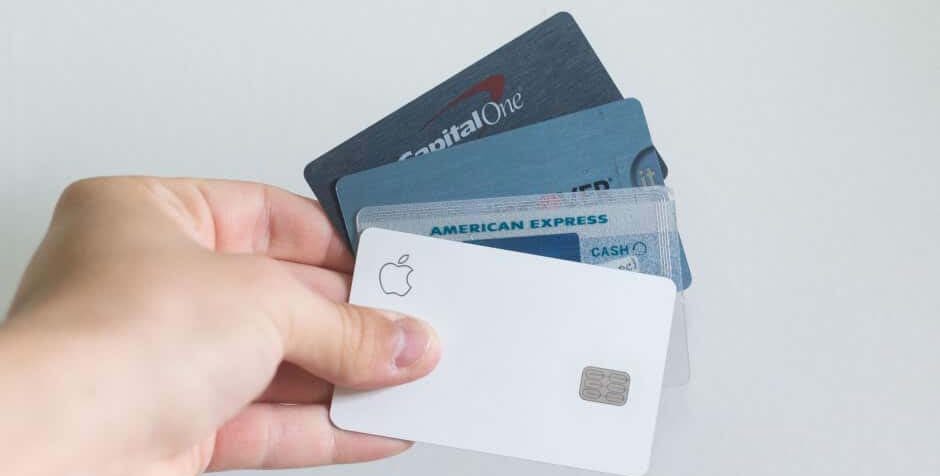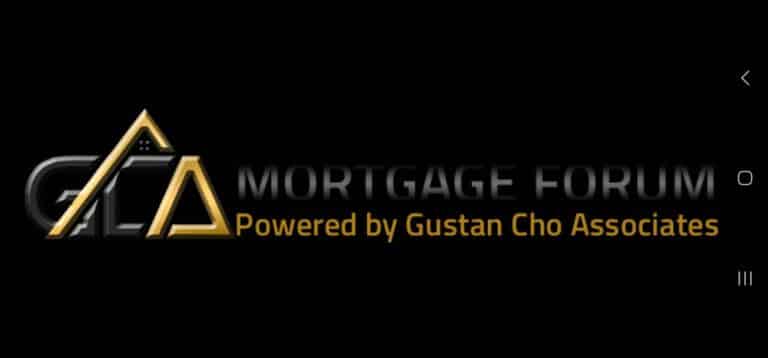Adding Credit Tradelines To Qualify For Mortgage
In this blog, we will cover and discuss adding credit tradelines to qualify for mortgage by boosting credit scores. Many homebuyers go to their banks and other lenders to be told that they do not qualify for mortgage. This is because they do not have three credit tradelines or their scores are not high enough to qualify for mortgage. Adding credit tradelines to qualify for mortgage is not required. Tradelines are not government and/or conventional mortgage guidelines.
Lender Guidelines on Credit Tradelines
They are overlays where some lenders may require such as a number of seasoned credit tradelines. Gustan Cho Associates is licensed in 48 states with over 220 wholesale lenders. Many wholesale lenders have no overlays on government and/or conventional loans. We do not require credit tradelines. Credit tradelines are very important. Most lenders require a certain amount of credit tradelines that have been seasoned for 12 to 24 months. Adding Credit Tradelines To Qualify For Mortgage is not a requirement under FHA, VA, USDA, Fannie Mae, Freddie Mac Guidelines.
Learn more about adding credit tradelines to qualify for mortgage. Click here!
What Are Credit Tradelines?
In this section, we will cover what are credit tradelines. We will explain why credit tradelines are so important when you are applying for a mortgage. Credit tradelines are records of your credit accounts on your credit report. Credit tradelines include information such as the names of lenders, account numbers, the types of accounts (such as credit cards, mortgages, or installment loans), the dates the accounts were opened, credit limits or loan amounts, current balances, and payment history.
Lenders and creditors use the borrower’s credit payment history by reviewing the number of credit tradelines and the longevity to assess your creditworthiness when you apply for new credit.
Each tradeline represents a different credit account you have, and they contribute to your overall credit profile. Positive tradelines, such as accounts with a history of on-time payments and low balances, can positively impact your credit score. In contrast, negative tradelines, such as accounts with late payments or defaults, can harm your credit score.
Types of Credit Tradelines For a Mortgage
There are two different types of credit tradelines: traditional and non-traditional credit tradelines. Traditional credit tradelines are credit accounts that report to credit bureaus. Non-traditional credit tradelines are creditors that do not report on credit bureaus. Most lenders consider a credit tradeline valid if the borrower has at least a one year history making timely payments to the creditor. Credit tradelines are credit accounts that consumers have established from a creditor. Examples of tradelines are the following:
- credit cars
- student loans
- automobile loans
- mortgages
- payday loans
- personal lines of credit
- other creditors and that creditor reports it to all three credit reporting agencies
When a homebuyer applies for a mortgage, lenders typically want to lat look at a mortgage loan applicant’s past credit payment history to review their payment history in the past two years. Mortgage underwriters look at various types of credit tradelines on your credit report to assess your creditworthiness and ability to manage debt responsibly. Here are some common types of credit tradelines that lenders may consider:
What Are Revolving Account Credit Tradelines?
Revolving account credit tradelines are credit accounts with a credit limit that you can continually borrow against and repay, such as credit cards and lines of credit. Lenders typically look at your credit card balances, available credit, and payment history.
What Are Installment Loan Credit Tradelines?
Installment loan credit tradelines are loans where you borrow a fixed amount of money and repay it in fixed monthly installments over a set period, such as auto loans, student loans, and personal loans. Lenders consider your payment history, outstanding balance, and loan term length. These type of credit is called installment loan credit tradelines.
Credit Tradelines on Mortgage Loans
Mortgage loans credit tradelines have a lot of weight. Previous mortgage loans, if any, are significant tradelines for mortgage lenders. They assess your payment history, outstanding balance, and any delinquencies.
Credit Tradelines on Retail Accounts
Retail Account Credit Tradelines are credit accounts issued by retailers, such as department store credit cards. Lenders may consider these accounts’ balances, payment history, and credit limits.
Credit Tradelines on Secured Loans
Secured loans are backed by collateral, such as secured credit cards or secured personal loans, and may also be considered tradelines. Lenders look at your payment history and the value of the collateral.
Credit Tradelines as Joint Accounts
If you share a credit account, such as a revolving or installment account, with someone else, such as a spouse or partner, the payment history and balances on joint accounts may be considered.
Authorized User Credit Tradelines
Accounts where you are listed as an authorized user on someone else’s credit card may also appear on your credit report. Lenders may assess your behavior as an authorized user, although this carries less weight than primary account holder activity. It’s important to note that each lender may have its criteria and preferences when assessing credit tradelines for mortgage applications. Building a diverse credit history with responsible borrowing and timely payments can improve your chances of qualifying for a mortgage with favorable terms.
Importance of Traditional Credit Tradelines
When these creditors report account payment history to the credit bureaus, the credit bureaus will update payment history every month. It will be reported as being paid on time or not as well as the following information:
- Original credit limit
- Date Opened
- Current balance
- Payment history
- Late payment history
- Date of last activity
This information is then used by creditors such as lenders to determine credit risk by reviewing credit history and payment history from various creditors. The longer credit tradelines are the more secure potential new creditor. Prior payment history is a good indicator of future payment on the credit.
What Are Traditional Credit Tradelines?
Traditional and nontraditional credit tradelines are two types of credit accounts individuals can use to establish and build their credit history. Here’s a breakdown of each:
Traditional Credit Tradelines
Examples of traditional credit tradelines are credit cards, mortgages, auto loans, student loans, revolving credit accounts, and installment loans.
Characteristics of Traditional Credit Tradelines
Traditional credit tradeline accounts are typically reported to the major credit bureaus (Experian, Equifax, and TransUnion). Traditional credit tradelines involve borrowing money from a financial institution or lender. Payments made to creditors of traditional credit trades and outstanding balances are reported to credit bureaus, impacting your credit score. Generally, these tradelines have more standardized criteria for approval and reporting.
What Are Nontraditional Credit Tradelines?
For individuals with limited or no traditional credit history, nontraditional tradelines can be instrumental in accessing credit and financial services. Examples of nontraditional credit tradelines are rent payments, utility bills, cell phone bills, insurance bills, water bills, and other recurring payments that do no report to credit bureaus.
Characteristics of Nontraditional Credit Tradelines
These are accounts that may not traditionally be reported to credit bureaus. They reflect a broader range of financial behaviors beyond borrowing money. Lenders may use nontraditional tradelines to assess creditworthiness, particularly for individuals with limited traditional credit histories. While only sometimes reported to credit bureaus, some lenders and credit scoring models consider these nontraditional tradelines to assess creditworthiness. Nontraditional tradelines can be particularly useful for individuals with thin credit files or those looking to rebuild their credit.
Key Considerations of Traditional and Nontraditional Credit Tradelines
Credit tradelines has impacts on credit tradelines. Both traditional and nontraditional tradelines impact consumer credit scores positively or negatively, depending on how you manage them. Timely payments and responsible use typically help boost your score.
Get qualify for mortgage. Click here!
Mortgage Guidelines on Credit Tradelines
Each lender has its own preferences on the number of credit tradelines and the longevity. For example, many non-QM wholesale lenders will require at least three traditional credit tradelines that are at least 12 months old or two traditional credit tradelines that are 24 months old.
Besides requiring a minimum number of seasoned credit tradelines, non-QM wholesale lenders make verification of rent a mandatory credit tradeline for them to approve a non-QM mortgage loan.
Different lenders may weigh traditional and nontraditional tradelines differently when evaluating credit applications. Some lenders may prioritize traditional credit history, while others may consider a mix of both. While many traditional accounts are automatically reported to credit bureaus, nontraditional accounts may require special arrangements with reporting agencies for inclusion in credit reports. In summary, traditional credit tradelines are the standard accounts reported to credit bureaus.
Benefits of Adding Credit Tradelines To Qualify For Mortgage
Adding positive credit tradelines is an absolute must to get a solid credit score and make the mortgage approval process much smoother. Credit tradelines are widely used for credit scoring, and nontraditional credit tradelines provide an alternative means to demonstrate creditworthiness, especially for individuals with limited traditional credit histories. Both types play important roles in assessing and building credit.
Adding Credit Tradelines To Qualify For Mortgage To Increase Scores
Apply for new credit accounts. Consumers who have descent credit may try applying for unsecured credit cards. Remember that every time someone applies for new credit they will get a hard credit inquiry reported on the credit report. Each hard credit inquiry can drop credit scores by 2 to 5 points so do not apply for a dozen credit cards all at the same time.
Adding Credit Tradelines To Qualify For Mortgage With Secured Credit Cards
Applying one to three credit card applications will be ideal. The positive credit score improvement with new credit cards will offset the drop of the hard credit inquiry. A department store credit card, gas credit card, payday loans, automobile loans, and other credit where the creditor will report it to the three credit bureaus will help start developing credit tradelines. People with a prior bankruptcy, foreclosure, deed in lieu of foreclosure, short sale, or have had recent bad credit should start re-establishing credit immediately by opening up three secured credit cards with a minimum of $500 credit limit.
Secured Credit Card Companies Will Extend Credit For Timely Paying Cardholders
Secured credit cards are the best tools in this planet to get new credit tradelines for those with prior bad credit. Each secured credit card will boost credit scores by at least 20 or more POINTS!!!! Credit unions, furniture stores, jewelry store, auto finance companies, gas stations, and pay day loans are some of the creditors with lighter credit requirements than unsecured credit cards. These creditors will be ideal places to apply for new credit tradelines for those who do not have strong credit or established credit tradelines.
Adding Credit Tradelines To Qualify For Mortgage With Nontraditional Credit
Qualifying for a mortgage using non-traditional credit tradelines can be an option for individuals with limited or no credit history through traditional means, such as credit cards or loans. Non-traditional credit tradelines are alternative sources of credit that demonstrate a borrower’s creditworthiness through payments made on regular expenses that don’t typically appear on credit reports. Here are some examples:
Rental Payments
Some mortgage lenders may consider rental payment history a non-traditional credit tradeline. You can use this to prove your creditworthiness if you’ve consistently paid rent on time.
Utility Bills
Regular payments for electricity, water, gas, and internet services can sometimes be non-traditional credit. Some lenders may accept proof of on-time payments for these bills as part of your credit history.
Insurance Premiums
Payments made towards insurance premiums, such as auto or renter’s insurance, can also be used to establish a credit history.
Cell Phone Bills
It’s advisable to consult with several lenders or a mortgage broker to explore your options and find a lender willing to consider a non-traditional credit history for mortgage qualification. Some lenders can also consider paying your cell phone bill on time as evidence of creditworthiness.
School Tuition Payments
When using non-traditional credit tradelines, keeping detailed records and documentation of your payment history is important. Lenders may require proof of payments, such as bank statements or receipts, to verify your creditworthiness. It’s essential to note that not all mortgage lenders accept non-traditional credit tradelines, and eligibility criteria can vary. Non-reporting credit tradelines. Not every creditor report credit to all three major credit bureaus:
If this is the case, consumers can request creditors and the three major credit bureaus to update credit file to reflect credit and payment history. Nontraditional credit can be used as credit tradelines if reported to credit bureaus. Consumers can use nontraditional credit in lieu of traditional credit tradelines.
What Are Nontraditional Credit Tradelines?
What is nontraditional credit? Nontraditional credit is credit that consumers make regular payments but the creditor does not report it to the three major credit reporting agencies. Examples of nontraditional credit are the following:
- Water bills
- Electric bills
- Gas bills, phone bills
- Insurance bills
- Rental payments
- Lease payments
- Cell phone bills
12 months of canceled checks are required for nontraditional credit tradelines to be valid and for the mortgage lender to be able to use it. If you’re paying for education, such as tuition fees or student loans, this can sometimes be used as a non-traditional credit tradeline..
Frequently Asked Questions (FAQs)
- What are credit tradelines?
Credit tradelines are records of credit accounts on a credit report, including payment history, credit limits, and balances. - What is the benefit of adding credit tradelines to qualify for mortgage?
Adding positive credit tradelines can improve your credit profile, potentially raising your credit score and making you a more attractive borrower to mortgage lenders. - How do I add credit tradelines?
You have the option to include credit tradelines by becoming an authorized user on another individual’s credit account or applying for new credit accounts. - What are authorized user tradelines?
Authorized user tradelines involve being added to someone else’s credit account as an authorized user, allowing you to benefit from their positive payment history and credit utilization. - What are primary tradelines?
Primary tradelines are credit accounts you open yourself, such as credit cards or loans, where you are solely responsible for repayment. - How does adding credit tradelines affect my credit score?
Adding positive credit tradelines can increase your credit score by demonstrating responsible credit usage and lowering your credit utilization ratio. - Are there risks to adding credit tradelines to qualify for mortgage?
Yes, there are risks, particularly with authorized user tradelines, such as being held responsible for any negative activity on the account. - How long does it take for added tradelines to impact my credit score?
The impact can vary, but generally, you may see changes within a few months as credit bureaus update your credit report. - Can I add tradelines if I have bad credit?
Adding tradelines with bad credit may be more challenging, but it’s still possible. However, focus on improving your credit habits and seeking professional advice. - Is it legal adding credit tradelines to qualify for mortgage?
Adding tradelines itself is legal, but it’s essential to ensure you’re not engaging in fraudulent activities or misrepresenting your creditworthiness to lenders.
Qualifying For Mortgage With a Lender With No Overlays
Gustan Cho Associates is licensed in 48 states and has over 160 wholesale mortgage lenders. We have a reputation for having wholesale mortgage lenders with no overlays on government and conventional loans. Homebuyers who need to qualify for a mortgage with no credit tradelines can contact us at Gustan Cho Associates at 800-900-8569 or text us for faster response. Or email us at gcho@gustancho.com.
Talk to an expert Loan Officer about adding credit tradelines to qualify for mortgage.








